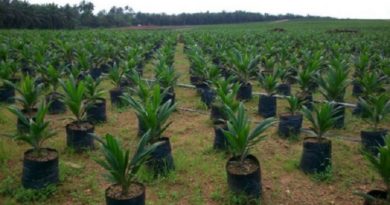World Soil Day: Why healthy soils are important to 2030 Agenda, Paris goals
The role of soil as a key component of climate action has been emphasised as the year 2017 World Soils Day, December 5 – a global day celebrating the vital role of soil in sustainable food production, healthy ecosystems and human well-being is being celebrated.
Essentially, healthy soils are essential to reducing greenhouse gas emissions and building resilience to climate change by maintaining or increasing their carbon content.
Land degradation results in soil carbon getting released into the atmosphere contributing to climate change. Healthy soils can help improve resilience to extreme weather events such as hurricanes, floods and droughts – the worst impacts of climate change, making sustainable soil management a key factor in advancing progress on the 2030 Agenda for Sustainable Development and the Paris Climate Change Agreement.
“It takes thousands of years to form 1 centimeter of soil. Yet, it can be destroyed in almost no time at all. Unsustainable agriculture practices, urban infrastructures, pollution, erosion, climate change and other factors all contribute to the rapid degradation of our soils and to desertification. About 33% of our lands are already degraded, and this increasing trend is putting in check the achievement of many global agreements,” Dr. Cristiana Paşca Palmer, the Executive Secretary of the Convention on Biological Diversity, said in her message to mark World Soil Day.
As the world’s population grows and global demand for food soars against the backdrop of a changing climate, it is becoming even more critical to ensure soil quality and health to maintain the essential services they provide.
This year’s theme “Caring for the Planet Starts from the Ground”, focuses on drawing attention to the importance of improving the health of soils and ensuring sustainable management of soil resources.
Nearly 80% of the average calorie intake per person comes from crops directly grown in the soil.
The United Nations Food and Agriculture Organization (FAO) estimates that 33% of our global soils are degraded, highlighting the urgent need to raise awareness on protecting soils and using them sustainably. Embracing sustainable practices for soil management and preventing land degradation is key to realize the full potential of soils for increased food production, clean water supply, carbon sequestration, biodiversity protection and improved resilience to climate change.




